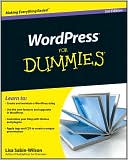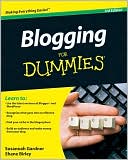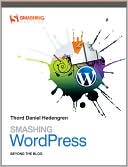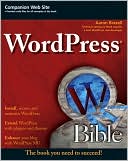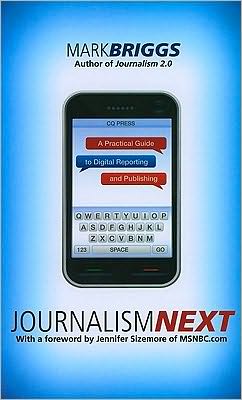Millennial Makeover: MySpace, YouTube, and the Future of American Politics
In an up-to-the-minute afterword written for this new edition, Morley Winograd and Michael D. Hais review the developments of the 2008 presidential election and demonstrate how the coming of age of a millennial generation and the expansion of a new communication technology produced another realignment, just as these twin forces of change have done throughout U.S. history.
Search in google:
This new in paperback edition includes a new afterword written specifically for this volume. Morley Winograd and Michael D. Hais review the developments of the 2008 presidential election and demonstrate how the coming of age of a millennial generation and the expansion of a new communication technology produced another realignment, just as these twin forces of change have done throughout U.S. history. Michelle LibraryJournal.com Anyone interested in the present and future course of American politics should read this insightful work, which could be titled Millennial Takeover. According to interdisciplinary analysis by Winograd (Marshal Sch. of Business, Univ. of Southern California), a former adviser to Al Gore, and Hais (former vice president, entertainment research, Frank N. Magid Assoc.), as we enter this critical 2008 election year we find ourselves on the cusp of another political transformation and realignment wrought by technological and demographic revolutions. The epicenter of this power earthquake is the Millennial generation, those born between 1982 and 2003. Armed with numbers, new attitudes and values, and "netroots" (MySpace, YouTube, Facebook) technology, the Millennials have the potential to revitalize citizenship, civic engagement, political alliances, the two major political parties, and, more broadly, American culture. Their impact may well start with the 2008 presidential election. With sound analysis, the authors persuasively contend that the prospect of Millennials going viral (using their numbers, values, commitments, and sociopolitical networking to effect change and demand new political leadership) must not be underestimated. If their conclusions are accurate, 2008 will be remembered as a turning point in American politics. Highly recommended. (Stephen K. Shaw, Northwest Nazarene Univ., Nampa, ID)
Preface ixAcknowledgments xiiiIntroduction 1Part I Cycles of American Politics1 The Rise and Fall of Political Parties in America 112 Idealist and Civic Eras in American History 303 Politicians Love to Talk 504 Meet the Millennials 665 Millennials Will Spearhead the Coming Political Realignment 87Part II Transition to a New Era6 The Realignment Begins 1117 Winning without the Mother's Milk of Politics 1248 The Technology Tsunami 1409 Social Networks Will Change America's Political Map 15610 Winning the Technology Arms Race 174Part III The New American Political Landscape11 Triggering a New America 19112 Who Will Party with Whom? 20313 Who Will Lead the Realignment? 22014 Rebuilding America's Civic Infrastructure 23315 Public Policy in a Millennial Era 247Afterword: To See the Future You Have to Understand the Past 269References 293Index 305
\ The Washington PostHere is an insightful—and provocative—look at the future of American politics. It will delight some people and startle others—but it will leave no one unmoved.— David S. Broder\ \ \ \ \ New York TimesAccording to the authors of Millennial Makeover: MySpace, YouTube, and the Future of American Politics, change is indeed on its way, and the magnitude of that change will be monumental—a tectonic realignment of the sort that occurs about every four decades, leading to a fundamental shift in policy priorities and voter coalitions.— Michiko Kakutani\ \ \ The Baltimore ExaminerThanks to sophisticated survey techniques and constant polling, demographers predicted the Millennials' pivotal role in this year's presidential election. Two analysts, Morley Winograd and Michael D. Hais, even prophesied the outcome of the election 14 months before.— Antero Pietila\ \ \ \ \ Michelle LibraryJournal.comAnyone interested in the present and future course of American politics should read this insightful work, which could be titled Millennial Takeover. According to interdisciplinary analysis by Winograd (Marshal Sch. of Business, Univ. of Southern California), a former adviser to Al Gore, and Hais (former vice president, entertainment research, Frank N. Magid Assoc.), as we enter this critical 2008 election year we find ourselves on the cusp of another political transformation and realignment wrought by technological and demographic revolutions. The epicenter of this power earthquake is the Millennial generation, those born between 1982 and 2003. Armed with numbers, new attitudes and values, and "netroots" (MySpace, YouTube, Facebook) technology, the Millennials have the potential to revitalize citizenship, civic engagement, political alliances, the two major political parties, and, more broadly, American culture. Their impact may well start with the 2008 presidential election. With sound analysis, the authors persuasively contend that the prospect of Millennials going viral (using their numbers, values, commitments, and sociopolitical networking to effect change and demand new political leadership) must not be underestimated. If their conclusions are accurate, 2008 will be remembered as a turning point in American politics. Highly recommended. (Stephen K. Shaw, Northwest Nazarene Univ., Nampa, ID)\ \ \ \ \ The Washington Post"Here is an insightful—and provocative—look at the future of American politics. It will delight some people and startle others—but it will leave no one unmoved."\ \ \ \ \ New York Times"According to the authors of Millennial Makeover: MySpace, YouTube, and the Future of American Politics, change is indeed on its way, and the magnitude of that change will be monumental—a tectonic realignment of the sort that occurs about every four decades, leading to a fundamental shift in policy priorities and voter coalitions."\ \ \ \ \ The Baltimore Examiner"Thanks to sophisticated survey techniques and constant polling, demographers predicted the Millennials' pivotal role in this year's presidential election. Two analysts, Morley Winograd and Michael D. Hais, even prophesied the outcome of the election 14 months before."\ \ \ \ \ Tufts University's Jonathan Tisch College of Citizenship and Public Service"We found similar generational patterns to Winograd and Hais in our recent paper entitled 'The Millennial Pendulum.' Our paper added one small methodological refinement--we tracked political opinions over time for several cohorts--but didn't provide much of a literature review. Any bibliography should start with Winograd and Hais."\ \ \ \ \ Wall Street Journal"I think they're on to something important. While I don't agree with every point in their analysis, I think that Millennial Makeover will be read with pleasure by Democrats and should be read with careful, worried attention by Republicans."\ \


